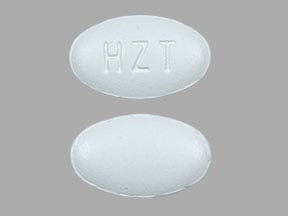
Duexis Coupons & Savings Card – Discount Prices from $66.15
Brand for: Ibuprofen-famotidine
My prescription
Edit
800-26.6MG, Ibuprofen-famotidine (90 Tablets)
Select pharmacy

CVS
$66.15
COUPON PRICE
Albertsons
$73.35
COUPON PRICE
Walgreens
$94.59
COUPON PRICE
Walmart
$201.91
COUPON PRICEDuexis savings card
Show this card to your pharmacist
CVS
$66.15
BIN
ID
PCN
GRP
019876
LH7DF17A7C
CHIPPO
LHX
Powered by
More prescriptions for rheumatoid arthritis
More prescriptions for rheumatoid arthritis
Price history for Duexis (brand) & Ibuprofen-famotidine (generic)
90 Tablets, 800-26.6MG
Average retail price for Duexis
Average retail price for Ibuprofen-famotidine
Average SaveHealth price for Ibuprofen-famotidine
Our price history data is based on aggregated prescription data collected from participating pharmacies in America. Our prescription data updates daily to reflect the latest price changes. If you notice a missing data point, it means there wasn't sufficient data available to generate a monetary value for that date.
Over the last 12 months, the average discount price of Duexis is $548.28 using the SaveHealth savings card. That's an average savings of 81.44% on Duexis with our discount card.
*Retail prices are based on pharmacy claims data, and may not be accurate when we don't have enough claims.
Duexis (Ibuprofen-famotidine) dosage forms
Dosage Quantity Price from Per unit 800-26.6MG 90 Tablets $66.15 $0.73 800-26.6MG 21 Tablets $26.87 $1.28 800-26.6MG 30 Tablets $31.58 $1.05 800-26.6MG 60 Tablets $44.87 $0.75 800-26.6MG 270 Tablets $145.86 $0.54
| Dosage | Quantity | Price from | Per unit |
|---|---|---|---|
| 800-26.6MG | 90 Tablets | $66.15 | $0.73 |
| 800-26.6MG | 21 Tablets | $26.87 | $1.28 |
| 800-26.6MG | 30 Tablets | $31.58 | $1.05 |
| 800-26.6MG | 60 Tablets | $44.87 | $0.75 |
| 800-26.6MG | 270 Tablets | $145.86 | $0.54 |
Why was Duexis taken off the market?
Duexis has not been taken off the market. It is a prescription medication that combines ibuprofen and famotidine, used to relieve pain and reduce the risk of developing stomach ulcers in patients who require long-term use of ibuprofen. If there are any concerns about its availability, it is advisable to consult a healthcare provider or pharmacist for the most current information.
What is the drug Duexis used for?
Duexis is used to relieve symptoms of rheumatoid arthritis and osteoarthritis, as well as to decrease the risk of developing stomach ulcers in patients who require ibuprofen for these conditions. It combines ibuprofen, a nonsteroidal anti-inflammatory drug (NSAID), with famotidine, which helps protect the stomach lining.
Is Duexis the same as ibuprofen?
Duexis is not the same as ibuprofen. Duexis is a combination medication that contains both ibuprofen and famotidine. Ibuprofen is a nonsteroidal anti-inflammatory drug (NSAID) used to relieve pain and inflammation, while famotidine is a histamine H2-receptor antagonist that helps reduce stomach acid and prevent ulcers.
What should I not take with DUEXIS?
DUEXIS, which contains ibuprofen and famotidine, should not be taken with other NSAIDs (nonsteroidal anti-inflammatory drugs) to avoid increased risk of gastrointestinal issues. Additionally, it should not be taken with aspirin, unless directed by a healthcare provider, as this can also increase the risk of side effects. Alcohol consumption should be limited, as it can exacerbate stomach irritation. It's important to consult with a healthcare provider before combining DUEXIS with any other medications, including over-the-counter drugs, supplements, or herbal products, to avoid potential interactions.
Why was DUEXIS taken off the market?
As of the latest available information, DUEXIS has not been taken off the market. It is a combination medication containing ibuprofen and famotidine, used to relieve pain and reduce the risk of developing stomach ulcers in patients who require ibuprofen for arthritis or other conditions. If there are any concerns or updates regarding its availability, it is advisable to consult a healthcare professional or check with the relevant regulatory authorities for the most current information.
